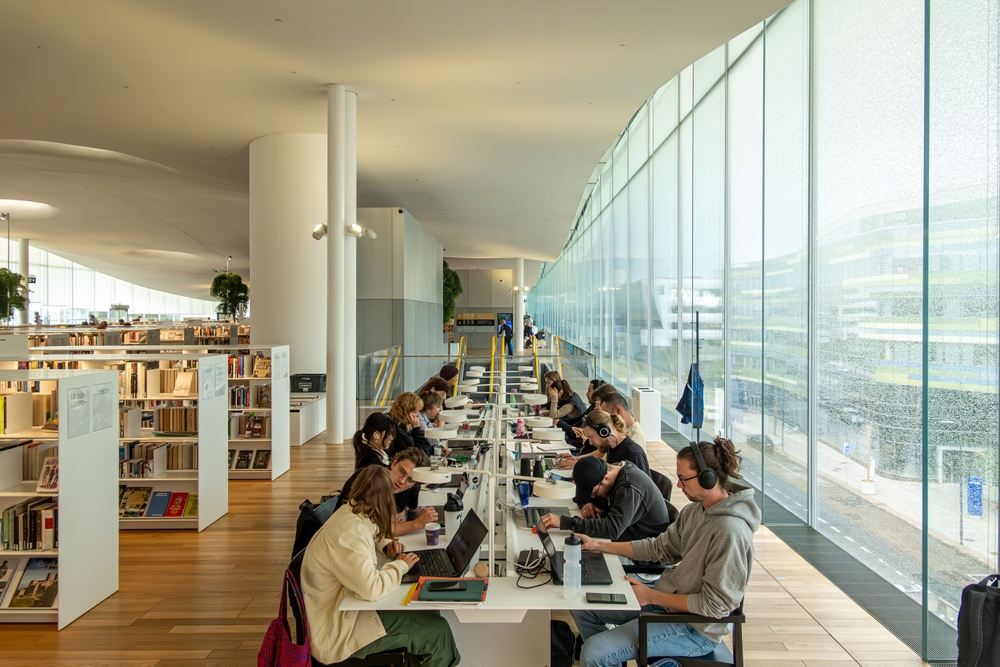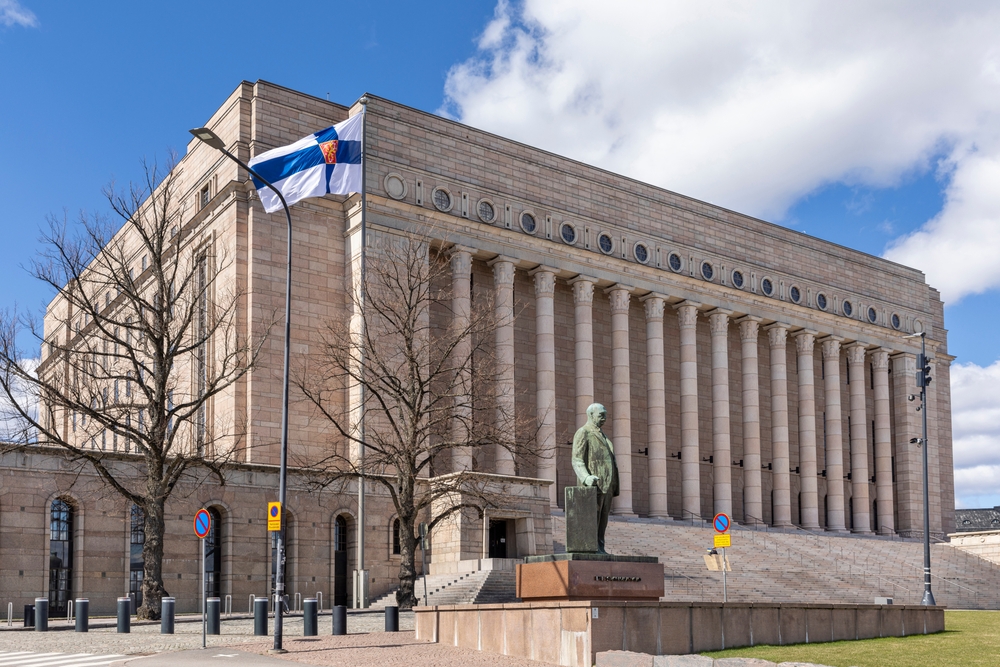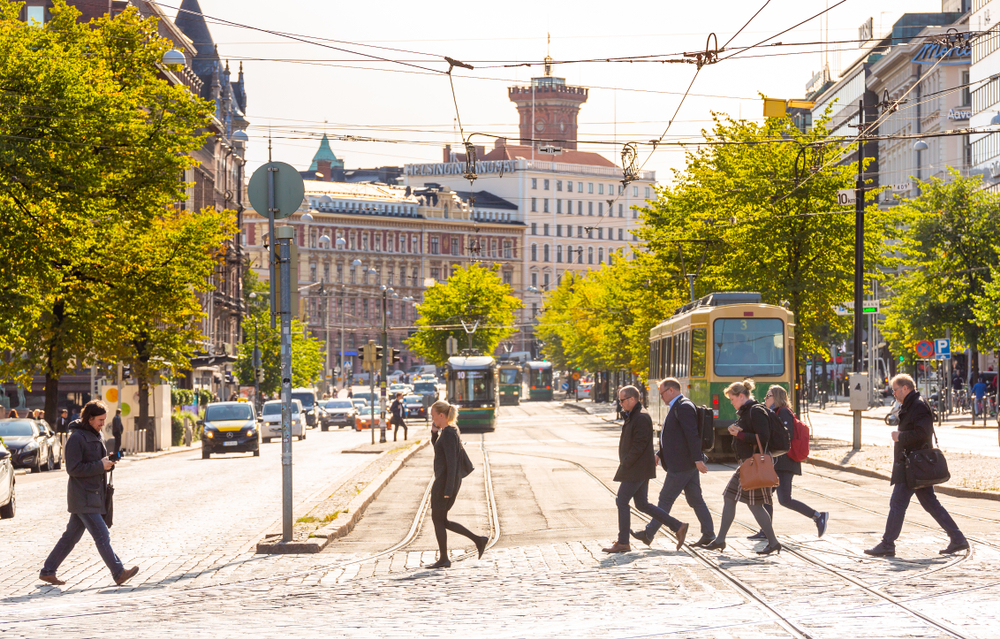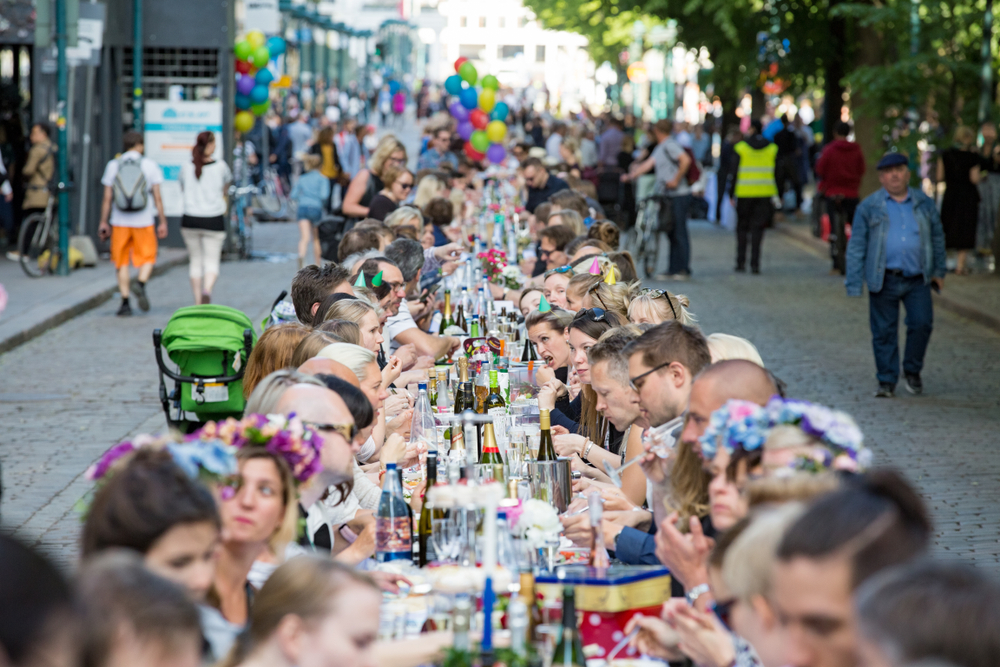It’s Finland, and once you understand why, it’s hard not to fall in love.

Forget palm trees and year-round sunshine—Finland, a small Nordic country with long winters and modest cities, has been named the world’s happiest country for seven years straight. That might sound surprising at first, especially since its climate is more snowdrift than sunbeam. But happiness here doesn’t come from flashy distractions or constant stimulation. It’s built on something deeper, quieter, and more lasting.
Finns have created a society where trust, balance, and well-being are prioritized in nearly every corner of life. They’ve embraced simplicity, protected nature, and designed systems that support—not stress—people. While other countries chase productivity and competition, Finland chooses connection, reflection, and rest. And the result? A kind of contentment that’s steady and deeply rooted. Here’s why so many people admire Finland—and why those who live there are consistently the happiest on earth.
1. People actually trust each other.

In Finland, it’s not uncommon to see parents leave their babies sleeping in strollers outside cafés while they enjoy coffee inside, as per writers at Finland for Kids shared. That might raise eyebrows elsewhere, but here, social trust runs deep. People believe their neighbors are decent and that lost wallets will be returned without a second thought. It’s not naive—it’s just how life works when you grow up in a society where trust is the norm.
This trust goes beyond individual behavior. It shapes the way society operates, reduces stress, and creates a sense of safety that people in many countries only dream of. When you’re not suspicious of everyone around you, life feels easier and more peaceful. That underlying calm becomes part of everyday life, making people feel more relaxed, secure, and content overall.
2. Nature is part of everyday life.

Finland is a nature lover’s dream. With over 70% of the country covered in forests and tens of thousands of lakes, the outdoors is always close, as reported by Eeva-Liisa Hallanaro at This is Finland. But it’s not just geography—nature is a central part of Finnish culture. The concept of jokamiehenoikeus, or “everyman’s right,” gives everyone access to the wild. You can walk, forage, or camp freely, even on private land, as long as you’re respectful.
This constant access to nature keeps people grounded. It offers calm, beauty, and a built-in escape from stress. Even city dwellers have national parks or forest trails nearby. Whether it’s picking blueberries, taking a sauna by the lake, or just walking in silence, Finns lean into nature’s rhythm. That deep connection brings peace and clarity—and it plays a huge role in why they report such high life satisfaction.
3. Work-life balance actually exists.

In Finland, you’ll rarely find anyone bragging about working 70-hour weeks, according to Minna at Finnwards. People finish their work on time, take proper vacations, and don’t feel guilty about shutting down their laptops at the end of the day. Productivity isn’t measured by how exhausted you are—it’s measured by how well you work within reasonable hours.
This attitude toward work creates healthier lives. Burnout is less common, mental health is stronger, and people have the energy to enjoy their free time. Whether it’s spending time with family, heading to a cottage for the weekend, or simply relaxing at home, Finns protect their personal lives. That breathing room makes a difference. When people aren’t constantly stressed or overworked, happiness isn’t a far-off goal—it’s something they experience daily.
4. Education doesn’t crush your soul.

Finnish kids don’t start formal school until age seven, and when they do, their days are short and filled with play. There’s minimal standardized testing, less homework, and a deep trust in teachers to teach well. The system is focused on equity, curiosity, and developing a love of learning—not churning out perfect grades.
This philosophy carries into adulthood. Education is free, and lifelong learning is encouraged. People feel supported in their growth, not pressured to perform. That ease and openness create a less anxious society. Instead of turning childhood into a race or burdening students with debt, Finland gives its people the space to learn joyfully—and that freedom helps happiness thrive.
5. No one’s obsessed with showing off.

Finnish culture doesn’t reward flashiness. In fact, modesty is a core value. You won’t see many luxury cars, designer logos, or people flaunting their wealth. There’s even a cultural concept called sisu—a kind of quiet resilience and humility that shapes how people carry themselves.
This mindset reduces comparison and envy. People don’t feel pressured to keep up appearances or outdo each other. That simplicity fosters authenticity and contentment. When status isn’t the focus, people spend less energy competing and more energy enjoying their lives. It’s refreshing, honest, and a big reason why Finland feels so emotionally balanced.
6. Healthcare won’t bankrupt you.

Finland’s public healthcare system ensures that everyone can access medical care without drowning in bills. Whether it’s a routine visit or something more serious, people know they’ll be cared for. This safety net removes one of life’s biggest stressors—fear of getting sick and not being able to afford treatment.
The emphasis on preventive care also means healthier lives overall. Mental health services are part of the conversation, and there’s less stigma around seeking help. When your well-being isn’t tied to your bank account, life feels more manageable. That kind of security helps people feel safer and more hopeful—which feeds directly into long-term happiness.
7. People really know how to rest.

Finland embraces rest as an essential part of life, not a reward for burning out. The long, dark winters encourage a culture of coziness—candles, saunas, hot drinks, and peaceful evenings are all part of the rhythm. People take things slow, and that quiet lifestyle is respected, not judged.
There’s no pressure to be “on” all the time. Stillness is seen as valuable, and solitude isn’t feared. That allows people to process emotions, relax fully, and recharge without guilt. This national embrace of downtime creates mental space—and that space is where contentment can grow without rush or noise.
8. The government actually works.

While no country is perfect, Finland’s government ranks among the least corrupt in the world. Public institutions are transparent, functional, and designed to serve the people. Citizens generally trust the process, and policies are often evidence-based and focused on public good.
This trust extends beyond voting—it affects daily life. Roads are maintained, schools are well-funded, and social services are reliable. That kind of functionality breeds calm. People know they’re not alone in facing big problems. When a society functions smoothly, it lowers stress and raises optimism—key ingredients in national happiness.
9. Kids grow up in safe, playful environments.

Finnish childhood is filled with freedom. Kids roam neighborhoods, explore forests, and bike to school without constant adult surveillance. The country is one of the safest in the world, and that security allows children to play, imagine, and grow at their own pace.
Play is seen as essential—not optional—and it’s protected both at school and at home. This helps children develop confidence, independence, and joy. Parents aren’t overwhelmed by fear, and communities support young families. That strong start builds a foundation for lifelong happiness, and it reinforces the sense that everyone—especially the youngest—deserves peace and safety.
10. They take care of the vulnerable.

Finland has strong social safety nets. If someone falls on hard times, there’s help. Housing assistance, unemployment benefits, mental health support, and family services are widely available. It’s not about handouts—it’s about human dignity. People are helped back on their feet without shame or blame.
This approach reduces the fear of failure. It gives people confidence to take risks and resilience to get through hardship. A society that supports its weakest members doesn’t just uplift individuals—it creates collective strength. When you know your community won’t let you fall, life feels less precarious—and a lot more hopeful.
11. They celebrate the seasons.

Finland experiences some of the most extreme seasonal shifts—long, dark winters and almost never-ending summer days. But instead of fighting those changes, Finns embrace them. Winter brings warm lights, saunas, and snow sports. Summer brings lake swims, all-night bonfires, and cottage getaways under the midnight sun.
This seasonal rhythm teaches presence. Each phase of the year has its own joys, and people look forward to those cycles. It prevents boredom and helps life feel rich, even in simplicity. Embracing the seasons helps people tune into time, tradition, and nature—which fosters a deeper kind of happiness that doesn’t rely on constant novelty.
12. Community is part of the culture.

You won’t always find loud friendliness in Finland, but you will find quiet connection. People might keep to themselves in public, but when they speak, it’s genuine. Neighbors help each other, public services are designed for interaction, and shared spaces like libraries and saunas bring people together without pretense.
This subtle community builds resilience and reduces loneliness. Even a quick conversation at a local shop can carry warmth. People may be private, but they’re not isolated. They show up when it counts, and they create small, consistent moments of togetherness. That soft social fabric is one of Finland’s strongest sources of happiness—and one of its best-kept secrets.
